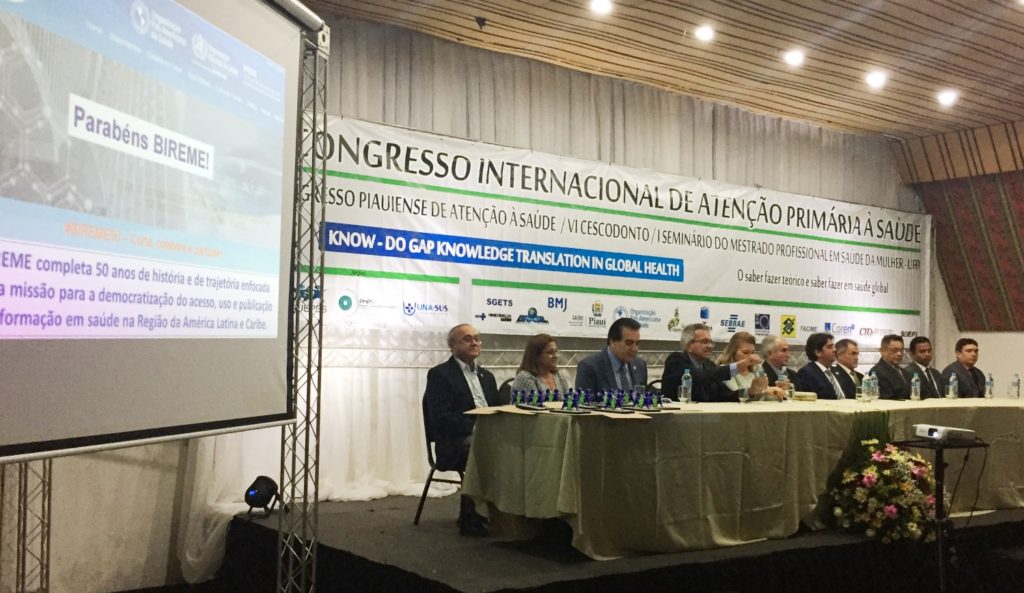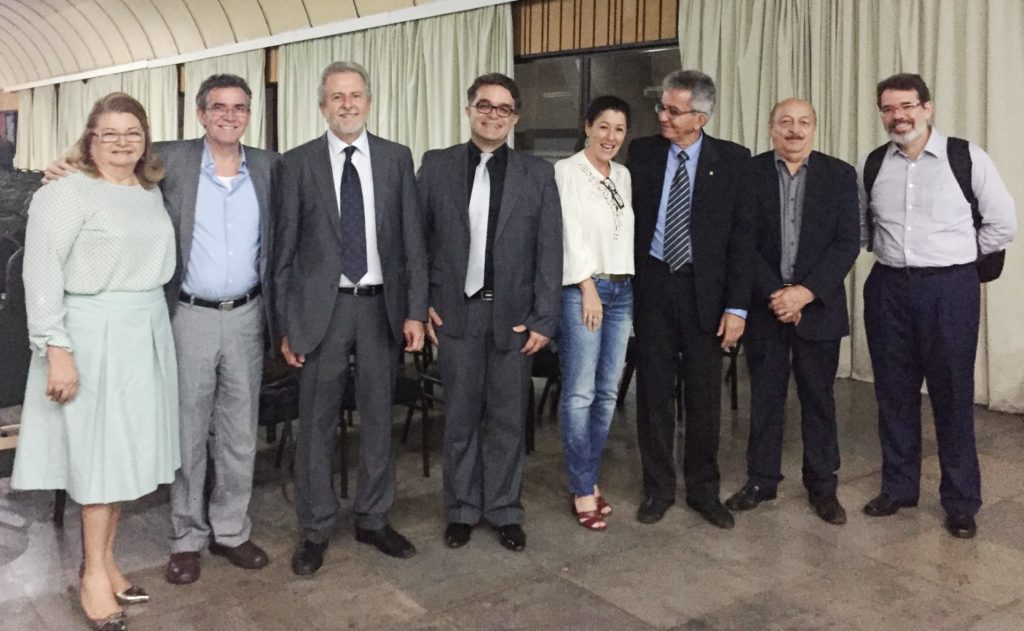On May 4-6, 2017, the Third International Conference on Primary Health Care was held in Teresina, Piauí, Brazil. The aim of this conference was to discuss topics related to the gap between knowledge and practice. The event brought together more than 700 managers and employees working on national, regional and local programs of the Brazilian Unified Health System, as well as academic professionals and students.

The Conference was an ideal opportunity to present relevant primary health care topics, such as Care Networks, Telehealth experiences, the use of pieces of evidence available to make decisions on health policies, among others. The Conference was also an opportunity for the Director of BIREME, Dr. Diego González, to present elements related to the Agenda 2030. In his presentation entitled “Information management within the context of Agenda 2030”. Dr. González stressed that nowadays we all agree that poverty eradication in all its forms and dimensions, including extreme poverty, is the greatest challenge facing the world and it is a key requirement for sustainable development.
Furthermore, he presented the four main components of Agenda 2030, including: (1) Declaration: Vision of the world in 2030, (2) Sustainable Development Goals (SDG): 17 goals, 169 targets, ranging from poverty eradication to high quality education, sustainable cities, peace and justice, (3) Means of implementation and (4) Follow-up and review – taking into account global indicators.
Dr. González talked about the importance it has for PAHO/WHO SDG 3 in order to “Ensure health and well-being for all at every stage of life”; however, he also explained that most SDG include health-related topics and they all need an intersectoral approach. The same idea can be used for the information access topic, which is also present in all 17 SDG and more specifically discussed on targets 16.10. “To ensure public access to information and protect fundamental freedom, in accordance to national legislation and international agreements”, and Target 9.c: “Significantly increase access to information and communications technology and strive to provide universal and affordable access to the Internet in least developed countries by 2020.”
During his presentation, Dr. González spoke about the commitment of the Pan American Health Organization/World Health Organization towards Latin American and Caribbean countries, supporting them in achieving the SDGs. Moreover, he shared examples related to some actions PAHO is carrying out on the field of information, such as a new website where scientific-technical documents and the mandates of the Governing Bodies related to SDGs are published:, and the knowledge windows with summaries of evidence, bibliographic information, infometrics studies and educational resources.

Also in this Congress, the keynote speech entitled “Theoretical and practical knowledge on Global Health: innovation and challenges” was delivered by Dr. Ulysses Panisset, professor at Universidade Federal de Minas Gerais and former employee of the World Health Organization. In his speech, Dr. Panisset stressed that “while scientific knowledge can be global, it is always applied in a local context and that it is precisely in places with fewer resources where the use of evidence on health decisions and policies is more justified.”
Moreover, BIREME contributed at the Congress with a workshop on EVIPNet Brasil, developed by Verônica Abdala, Manager of Services and Sources of Information, together with Dr. Jorge Barreto, researcher at FIOCRUZ, by using the SUPPORT Methodology to formulate evidence-informed policies.
At the end of the Congress, BIREME received acknowledgements and congratulations on its 50th anniversary.